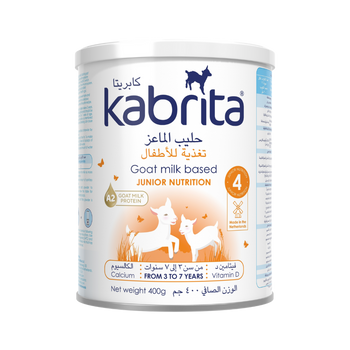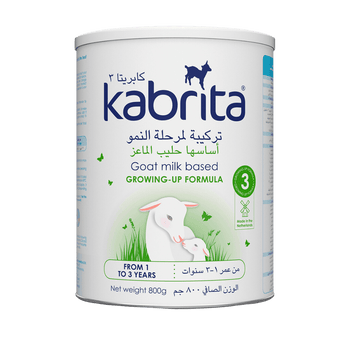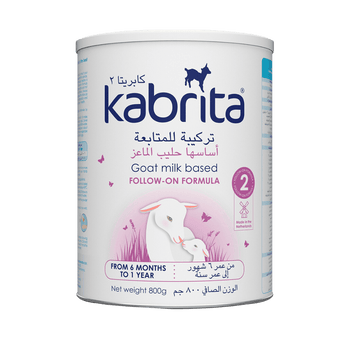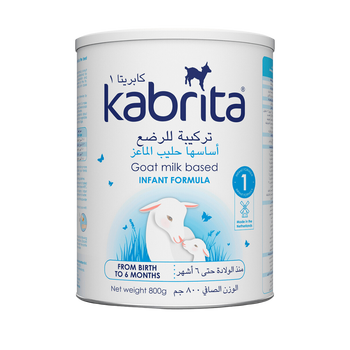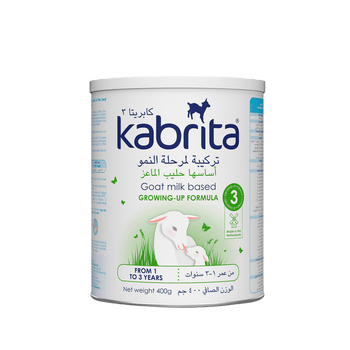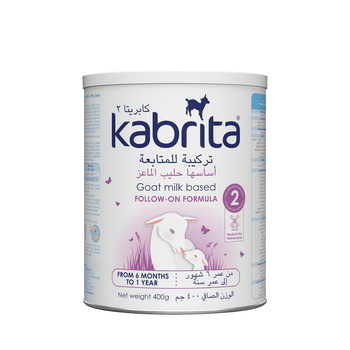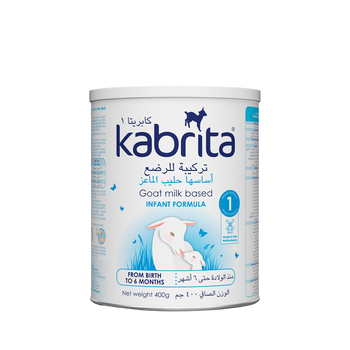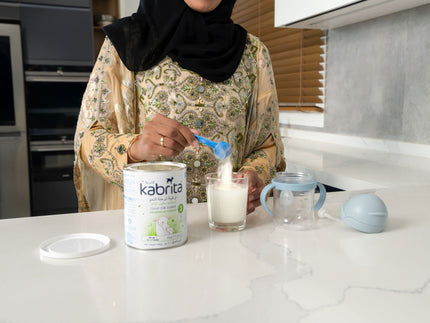Milk Recommendations for Babies of Different Age Groups

Breast milk provides optimal infant nutrition with essential nutrients, immune protection, and developmental benefits, with exclusive breastfeeding recommended for six months. When breastfeeding is not possible, appropriately formulated infant formulas including cow, goat, soy, and specialized options meet nutritional needs.
As children grow, milk complements a varied diet with recommended amounts decreasing by age. Understanding age-specific guidance helps parents support healthy growth, digestion, and development.
Breast milk is the gold standard of nutrition for most infants, when it comes to meeting their baby milk requirements and providing essential nutrients for healthy growth and development.
It offers a wide range of benefits for their overall well-being, including supporting optimal growth, promoting proper intestinal function, fostering a robust immune system development, and facilitating healthy brain development.
However, in situations where breastfeeding is not possible or inadequate, infant formula serves as an alternative option.
Formula is designed to replicate the nutritional composition of breast milk, ensuring that infants receive the necessary nutrients they need for optimal health and development. When deciding which milk is good for infants, it is essential to consider their specific needs and consult with healthcare professionals for guidance on selecting the most suitable milk for your baby.
Why Milk Is Important for Your Baby's Nutrition
Regardless of whether you have recently begun introducing solid foods or if you have a toddler who eagerly consumes three meals a day, milk remains a crucial component of your child's diet. The transition from milk to solid foods occurs gradually, and during the initial years of your baby's life, it is necessary to continue providing milk to ensure that their nutritional requirements are fulfilled.
Milk is packed with crucial nutrients that are vital for the growth and development of babies and children. These nutrients include:
- Calcium, which is essential for strong bones and teeth.
- Protein, which promotes growth and provides energy.
- Vitamin A, necessary for eyesight and immune function.
- Vitamin B12, which supports the production of healthy cells.
- Iodine, responsible for regulating metabolism.
- Magnesium, important for muscle function.
- Phosphorus, which aids in the release of energy.
Milk is also calorie-dense, fueling your baby's rapid growth and development. Breast milk, in particular, contains essential fatty acids known as DHAs, which have been associated with brain function and higher IQ.
Formula milk also includes these beneficial fats. In addition to providing essential nutrients, milk also helps keep your child hydrated, promoting their overall health and vitality.
Moreover, it serves as a source of comfort, as many children enjoy breastfeeding or having a bottle of milk as part of a soothing bedtime routine or when they are feeling unwell.
Types of Baby Milk
Breast Milk
Breast milk is a remarkable source of nutrition for infants, offering a diverse array of essential components. It contains carbohydrates, proteins (such as casein and whey), and fats (including important fatty acids like DHA and AA) that support growth and development.
Breast milk also provides vital vitamins and minerals, although additional supplementation may be needed for vitamins D and K. Moreover, breast milk contains immune cells, bioactive molecules, and hormones that contribute to immune defense and overall health.
The protein-derived and lipid-derived compounds in breast milk, including milk oligosaccharides, play a crucial role in protecting against pathogens and promoting a healthy gut microbiota. These properties make breast milk a unique and invaluable source of nourishment for infants, supporting their optimal growth, development, and well-being.
Infant Formulas
Infant formulas are carefully formulated to provide infants with the necessary nutrients for healthy growth and development when breastfeeding is not possible or desired. It comes in three main types: dairy-milk based, soy-based, and specialised formulas, each with variations in nutrition, taste, and cost. These formulas cater to different dietary and medical needs following a manufacturing process ensuring adherence to high-quality standards.
- Dairy-milk Based Formulas
- Goat Milk Formulas
Goat milk-based formulas provide an alternative option for infants who may have difficulty digesting cow milk. Goat milk is easier to digest and has a different protein structure, making it suitable for babies with sensitive digestive systems. These formulas are fortified with essential nutrients and designed to mimic the composition of human breast milk. Goat milk formulas have lower lactose content, making them a potential choice for babies with lactose intolerance.
- Cow Milk Formulas
Most infant formulas are based on cow milk, which is adjusted to match the composition of human breast milk by skimming and dilution. Cow-milk-based formulas are fortified with vegetable oils, vitamins, minerals, and iron to meet the nutritional needs of healthy full-term infants. However, keep in mind that cow milk allergy in infants is common, causing immune-mediated reactions with varying prevalence and symptoms affecting the skin, respiratory system, and gastrointestinal tract.
- Soy-Based Formulas
Soy-based formulas are made from soy proteins and are suitable for infants with galactosemia or congenital lactase deficiency. They can also be helpful for babies with colic and milk allergies. However, it's important to note that some infants allergic to dairy milk may also be allergic to soy milk. Soy products should not be used in infants under six months of age with food allergy.
- Specialized Formulas
Specialized formulas meet unique dietary needs who have specific conditions or allergies that require alternative options. Hypoallergenic formulas, formulated with hydrolyzed proteins, are designed for babies who cannot tolerate cow milk or soy-based formulas due to allergies.
- Hypoallergenic Formulas:
The protein in these formulas has been partially or extensively hydrolyzed into smaller sizes, making it easier for babies with protein allergies to digest.
- Amino Acid Formulas
Amino acid formulas are intended for infants with severe cow milk allergy who have reactions to extensively hydrolyzed formulas or refuse to consume them. These formulas provide protein in the form of free amino acids, without any peptides.

Milk Recommendation for Infant of 0-6 Months
The World Health Organization recommends exclusive breastfeeding for newborns until they are 6 months old, followed by a combination of breastfeeding and complementary nutritious foods until the age of 2, or for as long as desired by both mother and baby.
Benefits of Breastfeeding
- Breast milk provides optimal nutrition for most babies.
- Breast milk adapts to meet the changing nutritional needs of babies.
- Breastfeeding helps protect babies against illnesses and diseases.
- Breastfed babies have lower risks of asthma, obesity, type 1 diabetes, SIDS, ear infections, and stomach bugs.
- Breast milk transfers antibodies from the mother, strengthening the baby's immune system.
- Breastfeeding is convenient and can be done anytime, anywhere.
- Breastfeeding reduces the mother's risk of breast and ovarian cancer, type 2 diabetes, and high blood pressure.
If breastfeeding is not possible or preferred, infant formula is the only suitable substitute for breast milk, and it should serve as the sole source of nutrition for the first 6 months.
Goat milk formula is recognized as a viable alternative to breast milk for infants between 0 and 6 months old. Its composition and characteristics make it easier to digest, particularly for babies whose digestive systems are still developing.
This can help reduce the occurrence of digestive issues and discomfort in these young infants. When breast milk is not available or chosen as an option, goat milk formula can provide the necessary nutrition for the healthy growth and development of the baby. It is important to follow the instructions provided by healthcare professionals or infant formula manufacturers to ensure the proper preparation and administration of the formula.
Milk Recommendation for Infant of 6-12 Months
As your baby approaches 6 months of age, you will begin introducing solid foods, resulting in a gradual decrease in the amount of milk they consume.
If you are breastfeeding, your baby will naturally adjust their feeding based on the other foods they consume during the day. For formula-fed babies, according to NHS guidelines, they may require approximately
- 600ml of formula per day between 7-9 months
- 400ml between 10-12 months
However, please note that these are general recommendations and individual needs may vary.
While you can incorporate goat's milk or other alternatives into your baby's meals, it should not be given as a primary drink to replace breast milk or formula. It is important to continue providing breast milk or formula as the main source of nutrition for your baby.
Milk Recommendation for Child of 12-24 Months
While the World Health Organization recommends breastfeeding until the age of 2 years and beyond, your baby's need for breast milk will gradually decrease as they incorporate a wider variety of foods into their diet.
- For children aged 1-2 years, it is recommended to consume approximately 350-400ml of milk or have 3 servings of dairy foods daily. However, if your child already consumes a significant amount of dairy during their meals, you may need to offer less milk.
- During the period of 12-24 months, milk plays a significant role in the nutrition of young children. It is important to note that fats are crucial for brain development during this stage of growth. Therefore, it is recommended to avoid reduced-fat or low-fat milk choices, as they may not provide sufficient essential fats.
- As children reach the age of 2, their diet becomes more diverse and balanced, resulting in reduced reliance on milk as a primary source of nutrients. You can adjust the amount of milk based on their overall diet throughout the week. If your child's diet does not include dairy, it is important to consider suitable alternatives to ensure they receive the necessary nutrients.
Milk Recommendation for Children of 3+ Years
Milk remains important for children above the age of 3 due to its rich nutritional properties. It is a valuable source of calcium, promoting strong bones and teeth. Milk also provides essential nutrients like protein, vitamins, and minerals, supporting overall growth and development. Its balanced composition of proteins, fats, and carbohydrates aids in healthy weight gain and supplies energy for active lifestyles.
The recommended daily intake for children over 5 is around 2½ cups until age 7, ensuring adequate nutrient intake for optimal growth.
The ideal milk recommendation for children above the age of 3 years is Kabrita Junior. Kabrita Junior is a specially formulated powdered goat milk designed for children aged 3-7 years that is both delicious and easily digestible, making it an excellent choice for children. Compared to cow's milk, goat milk is naturally more gentle on the digestive system, making it suitable for children with digestive sensitivities or issues.
Kabrita Junior Nutrition is derived from high-quality Dutch goat milk, known for its premium quality. It provides essential nutrients necessary for healthy growth and development in children. Notably, goat milk is a rich source of easily digestible proteins, crucial for tissue building and repair. Additionally, it contains important minerals like calcium and vitamin D, which are vital for developing strong bones and teeth.

In conclusion, milk, particularly breast milk, plays a crucial role in the nutrition and development of infants and young children. Breast milk is recommended exclusively for newborns up to 6 months of age, providing essential nutrients, promoting healthy growth, and supporting the immune system. When breastfeeding is not possible, you can use baby formulas which are carefully formulated to replicate the composition of breast milk and support healthy development.
As children grow older, the amount of milk they need decreases, and a balanced diet with a variety of foods becomes important. Kabrita Junior, a specially formulated powdered goat milk, is an excellent choice for children aged 3-7 years. Consult with healthcare professionals for personalised guidance and recommendations based on your child's specific needs and circumstances.
